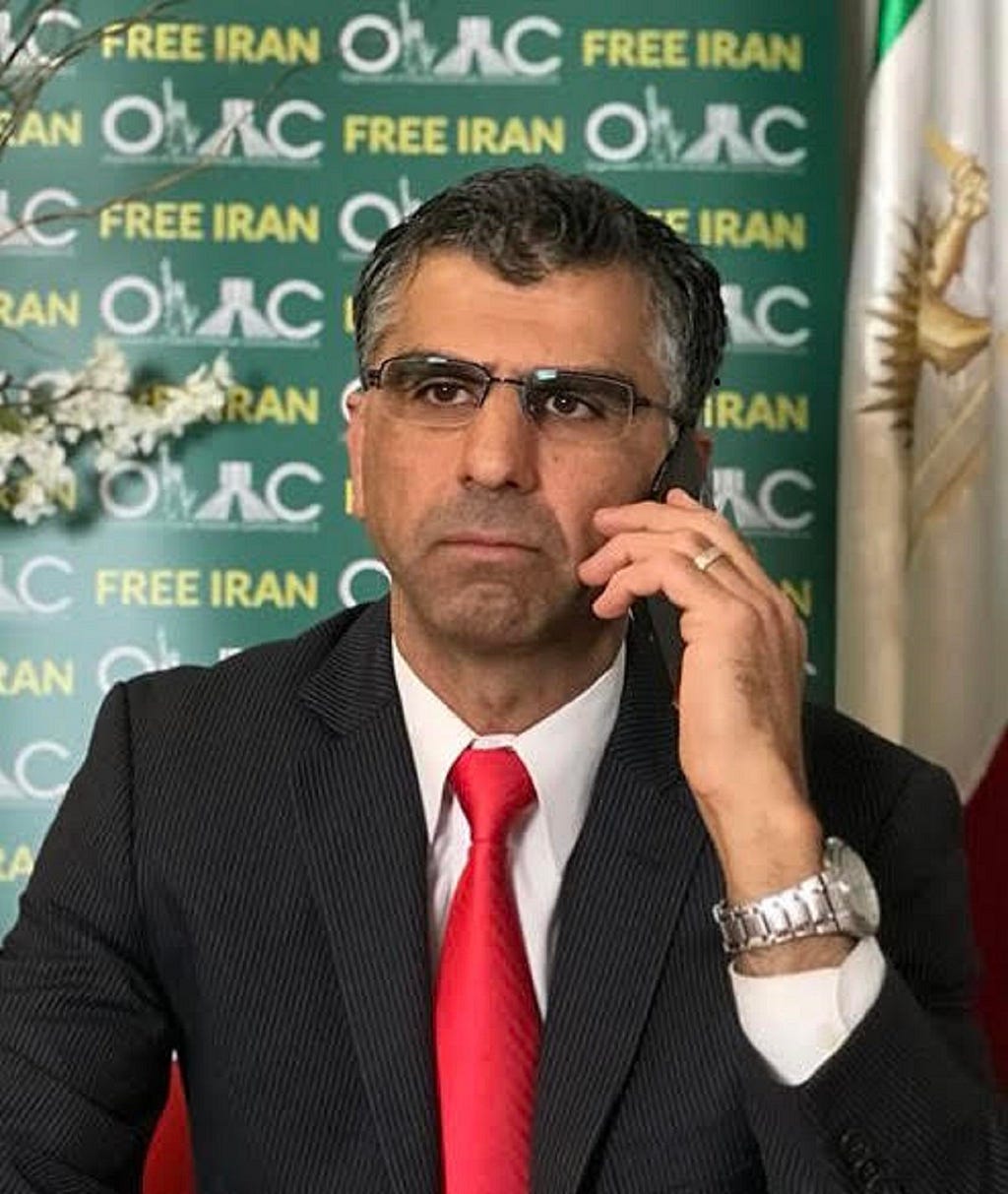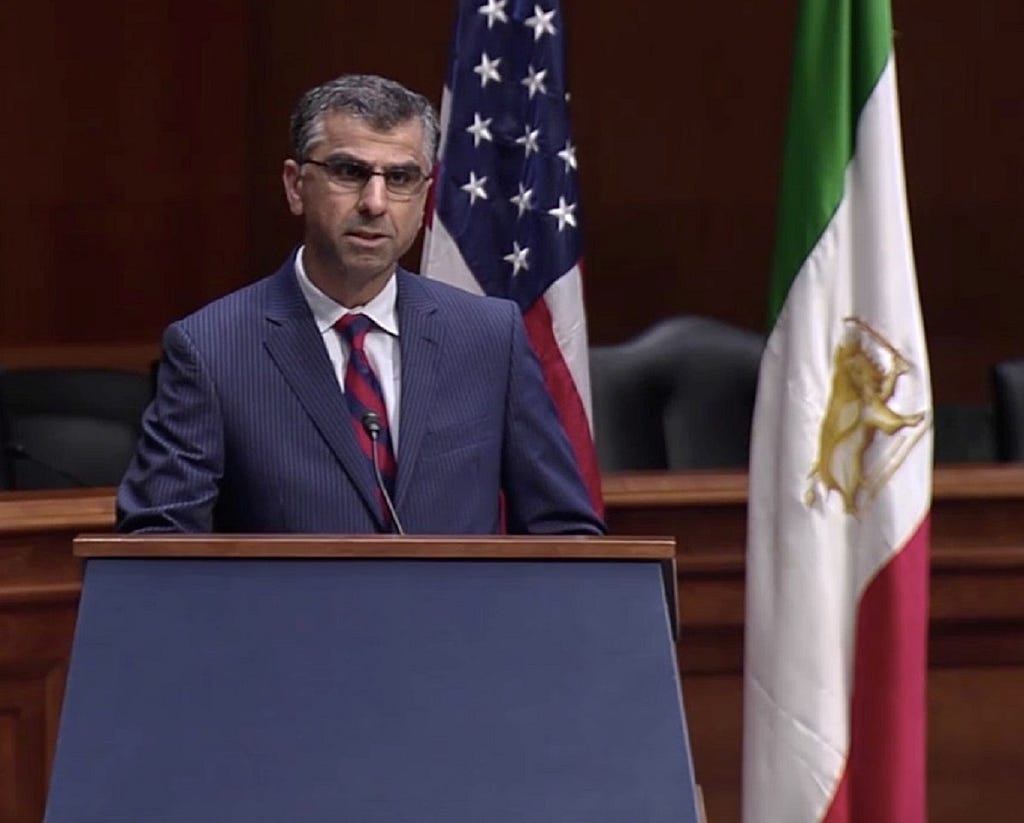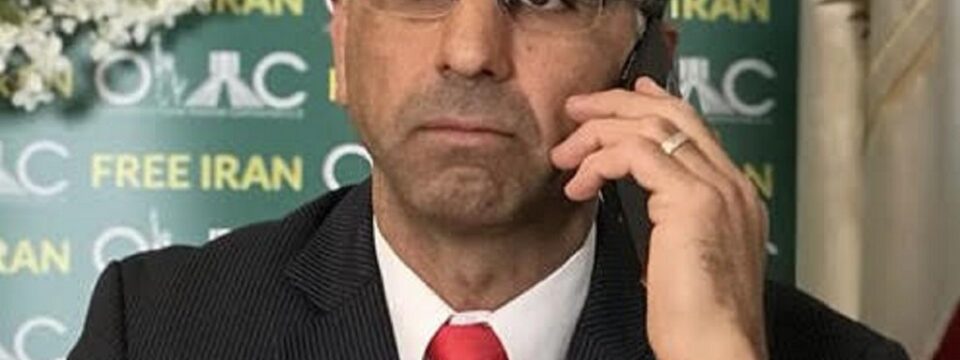Social Impact Heroes: Why & How Dr Majid Sadeghpour of The Organization of Iranian American Communities Is Helping To Change Our World

Know the sphere of your influence — The great thing about a democracy is its dynamism and I soon realized that America’s and American’s view of Iran are both changeable and challenging to change. I had hoped myself and our organization were able to inform decision makers faster and save more lives. I painfully realized that nothing is more impactful than sacrifice by us Iranian Americans and those in the streets of Iran if we want to advance the positive changes we envision.
As part of my series about “individuals and organizations making an important social impact”, I had the pleasure of interviewing Majid Sadeghpour.
Dr. Majid Sadeghpour is a human rights activist and a board member and the political director for The Organization of Iranian-American Communities (OIAC). Dr. Sadeghpour spent his childhood in Iran, and witnessed both the brutality of the regime in Tehran, actively participated in protests against oppression in Iran and witnessed the leadership of women in the ranks of the Iranian resistance. After the 1979 revolution in Iran, his family was persecuted and his brother ultimately executed. Sadeghpour escaped Iran and has since been an active opponent of the Islamist government in Iran. Dr. Sadeghpour has written extensively on Iran and has appeared in both national and international TV programs. Dr. Sadeghpour is a practicing healthcare professional and lives with his wife and children in Fairfax County, VA.
Thank you so much for joining us in this interview series! Can you tell us a story about what brought you to this specific career path?
In early 1979, I was an adolescent and part of a family of 7 living in a coastal Caspian Sea region of Iran, a country at the time going through generational change. In that fateful winter, my innocent world began to shatter — a self anointed monarch had been overthrown after years of resistance but a few clerics usurped power in the political vacuum that the dictator had created. In a country already void of democratic institutions, the clerics moved to curtail freedoms, forcefully marginalize women, and unleashed a brutal crackdown on secular groups and individuals. In the ensuing 43 years, these predator mullahs have served as the godfathers of Islamist fascism and bankrolled international terrorism. I was raised in a devout but secular family which included 4 strong women. As so it was thus that we became natural enemies of the unelected rulers in Tehran who used and promoted misogyny as a fuel for their fascist agendas.
After leaving Iran as a teenager, I continued to see my family and thousands of others get torn apart by religious fundamentalists. This background has certainly transformed my views on the role women can and must play in nurturing societies, particularly in securing and maintaining democracy. This realization has certainly motivated my activism over the past 3 decades. What I have discovered in the women-led Iranian resistance movement and within our community is not theoretical but palpable. The leadership of women in the ranks of our movement for democratic change in Iran throughout has inspired a new generation of women who are at the forefront of an unfolding revolution in Iran.
Can you share the most interesting story that happened to you since you began leading your company or organization?
Keeping our cultural heritage alive notwithstanding, the Organization of Iranian American Community’s mission and activities have centered on advocating for a democratic, secular and non-nuclear republic in Iran. This vision is rooted on 100 years of struggle for democratic representation in Iran and is grounded on its people’s ongoing sacrifice for human rights, gender equality, tolerance for religious and ethnic minorities and promotes social, economic justice for Iranians. Our organizations’ perspective is also shaped by Iranian and American people’s shared reverence for freedom. Given the cleric’s medieval nature, they are in a state of constant but natural conflict with freedom and the democracy and freedoms America represents. Yet these freedoms are harmonious with the wants and desires of millions in Iran who aspirate for similar rights. As such, peoples of both nations have always been the regime’s most notable adversaries. Our vision therefore, has all along been anchored on the belief that securing freedoms which enables a ballot box based democracy in Iran, will in fact be in the best interest of the United States.
As such, the most interesting story is that as I write, this narrative is also being irrevocably written by ongoing protesters who are dying in the streets and gallows of Iran but still seeking to end religious tyranny. America’s slow but maturing acceptance of this new reality will only hasten the inevitable change that is occurring in a country many of us once called home. The story is the painful loss of innocent life in Iran but also the transformation of Western perception of what is happening in Iran.
It has been said that our mistakes can be our greatest teachers. Can you share a story about the funniest mistake you made when you were first starting? Can you tell us what lesson you learned from that?
I can think of an event our community had organized in New York City to shed light on Iranian regime human rights violations. We had perhaps 1 notable speaker and a few victims of Iran regime atrocities lined up. We had also invited the media to attend. The funny mistake, if you can call it that, was our naive expectation. Our decision to arrange the event was in part motivated by work at the nearby United Nations, where a few dozen resolutions had been passed condemning gross human rights violations. Yet, we did not get a single UN staffer nor a media outlet to participate and hear our real life testimonials that day. Given the carnage Iranian people have endured since, that day’s experience is equally funny and painful.
Can you describe how you or your organization is making a significant social impact?
Our goal was and still remains to increase awareness among decision makers and the public about rights violations in Iran with the sincere belief that those abuses are explicitly linked to America’s safety and prosperity. Our community’s tireless efforts, visible in countless conferences, briefings, exhibitions, and interviews have helped elevate voices of the oppressed people in Iran. One example of this impact is the broad support we are now witnessing for the protesters in Iran and particularly for the women leading these protests. Beginning in September 2022, we have countered countless instances of notable public personalities, actors, politicians, authors, nobel laureates, and alike who have joined the broader public in expressing their revulsion of the clerical regime and expressed support for people’s democratic demands. The latter is beginning to help steer America’s policy to one that is better aligned with our value systems and is coincidentally more helpful to those oppressed in Iran.
Can you tell us a story about a particular individual who was impacted or helped by your cause?
Even though persecution is rampant, the recent rise in international attention to ongoing oppression in Iran introduces much needed transparency and resistance to widespread execution of dissidents in Iran. As a leading organization of Iranian Americans pursuing such an international response, we consider this paradigm to be a life-saving impact of our activism. Yet there are individuals within our community, particularly women among us, who have found our collective work empowering and even therapeutic. One example is Mrs. Mitra Samani, a resident of Southern California and a former political prisoner in Iran. She was held at and tortured in Iran’s notorious Evin Prison for years but has lived to share her stories. Mitra has been a featured speaker at many of our events, including the latest we held at the Historic Senate Kennedy Caucus Room in Washington, DC in December 2022. There, she shared her harrowing first hand account of conditions political prisoners live under and called for increased pressure on the predators who run the regime. Hundreds, if not thousands of Iranian Americans have found OIAC events and platforms extremely purposeful and empowering.
Are there three things the community/society/politicians can do to help you address the root of the problem you are trying to solve?
- The people of America live in a secular, democratic republic, a form of advanced governance the people of Iran have aspired to achieve for nearly 100 years. This natural convergence of wishes is best for America and the people in Iran. So the first thing is for our policymakers to publicly recognize the rights of the Iranian people to achieve a democratic and representative republic.
- The United States must lean on its leadership at the United Nations and work with our allies to hold aggressors in Iran accountable for inhuman treatment of Iranian people — in accordance with United Nations Declaration on Human Rights. This includes championing the cause of accountability for the 1988 massacre of some 30,000, political prisoners, mostly members of the main Iranian opposition, the MEK, as well as the ongoing crimes against humanity being committed in Iran.
- The OIAC holds photo exhibitions, online events, and in person picket lines across the country to urge American citizens to remain engaged because they truly believe fighting for freedom is a global cause. So the American people, with their interest and engagement can help make lasting democratic change in Iran possible.
How do you define “Leadership”? Can you explain what you mean or give an example?
To me, leadership is best visible when a person and/or an organization is able to inspire others to first realize and then act towards the greater good and goal. Over 40 years ago, the Iranian people were facing an unpleasant truth: the dreaded backwards mullahs had taken over this rich nation and were intent on keeping their rule with force. But also 40 years ago, a woman named Maryam Rajavi, a student leader in Sharif University of Technology, led a movement that sought to inform people inside and outside Iran that fundamentalism and misogyny are detrimental to democracy everywhere. Her unyielding emphasis on enabling women to lead this resistance paved the way for women to lead the Iranian resistance for decades to come. It is not incidental that women are today at the forefront of nationwide protests in Iran and are bravely challenging the aggressors they face.

What are your “5 things I wish someone told me when I first started” and why. Please share a story or example for each.
- To remember that change and movements take time to mature — As millions took to the streets of Iran in 2009 in what is often called the green revolution, I had sensed a seismic shift in Iran and was enthusiastic that America’s drifting Iran policy would come ashore. Yet, Western silence in the face of brutality, punctuated by the public murder a young woman named “Neda Agha-Sultan,” and years of ambivalence since, has enabled the mullahs to commit the horrors we witness still today.
- Know the sphere of your influence — The great thing about a democracy is its dynamism and I soon realized that America’s and American’s view of Iran are both changeable and challenging to change. I had hoped myself and our organization were able to inform decision makers faster and save more lives. I painfully realized that nothing is more impactful than sacrifice by us Iranian Americans and those in the streets of Iran if we want to advance the positive changes we envision.
- Sacrifice is not to be mourned but to embrace and be proud of — over the years, many in our community dedicated fortunes in terms of resources, emotion, time and even lives for freedom. As we grew, as an organization, as people, and as our cause gathered momentum, I realized that I am and fairly sure others among our community are, very proud of these sacrifices — because we are certain untold number of yet to be born children will benefit from the fruits of the slow growing tree we nurture today.
- As Eric Fromm said, “Love is a decision, it is a judgment, it is a promise.” All three characteristics of loving freedom are visible in the present protests in Iran. I am so proud that even children are willing to so vividly pursue that promise even when facing death.
- Intelligence alone is not sufficient — Iranian people and their women led resistance have been destroying the castle of fundamentalism one brick at a time. In over 30 years of activism, I have come to realize that only when coupled with an indestructible persistence, can our collective intelligence yield the results we most desire.
You are a person of enormous influence. If you could inspire a movement that would bring the most amount of good to the most amount of people, what would that be? You never know what your idea can trigger. 🙂
With such a movement I would want to breath life into the cause of Democratic Iranian Republic, because I wholeheartedly believe such a paradigm will not only free Iranians from the dark abyss they are in today, but also neutralize the nuclear, geopolitical, terrorism, and economic threats emanating from America’s most well known adversaries; all of whom are siphoning Iran’s natural resources and are enriched directly from the regime in Tehran.
Can you please give us your favorite “Life Lesson Quote”? Can you share how that was relevant to you in your life?
The quote is actually a poem by the great revolutionary Persian poet “Sohrab Sepehri,” who by the way, was killed by Reza Pahlavi, the dictator (Shah) before 1979.
“Be vast and lone, humble and strong;
I am coming back from meeting the sun, where the shadow is.”
For those of us who have experienced both the dictatorships of Shah and now the Sheikh (mullahs), we are forever smitten by the fleeting periods in between those 2 murderous reigns, where Iranians had the specter of democracy. We will not stop until all Iranians and indeed the world is blessed by a free Iran.
Is there a person in the world, or in the US with whom you would like to have a private breakfast or lunch with, and why? He or she might just see this, especially if we tag them. 🙂
Yes, it would be President Joseph Biden, because I want to make sure the POTUS does not make the same mistake President Obama admittedly made in 2009 by ignoring an ongoing uprising in Iran.
How can our readers further follow your work online?
You can read about our non-profit organization, mission, and contribute at www.oiac.org and on Twitter @OrgIAC.
This was very meaningful, thank you so much. We wish you only continued success on your great work!
Social Impact Heroes: Why & How Dr Majid Sadeghpour of The Organization of Iranian American… was originally published in Authority Magazine on Medium, where people are continuing the conversation by highlighting and responding to this story.
